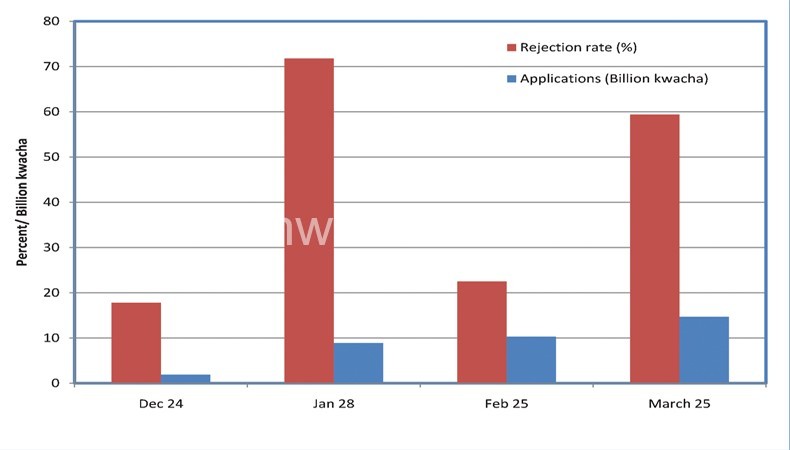Experts decry poor investment opportunities
An investment analyst has said Malawi’s economy will not fully benefit from the current improved market liquidity levels because of poor investment avenues, underdeveloped sectors and poor business environment.
The analyst, explaining the implications of the recent improvement in market liquidity levels, said on Tuesday that normally high liquidity levels encourage investors to risk in other investment avenues thereby expanding business opportunities in the economy.

He, however, argued that Malawi’s doing business environment is not encouraging enough to expand investments with challenges ranging from paperwork in registering firms, long waiting period to access licenses and higher cost of borrowing.
The analyst, who did not want to be named, said developed economies have simplified their general business environment to encourage creativity in all sectors, including agriculture, technology, health, education and mining thereby expanding their business options.
Malawi tumbled 10 steps to 171 out of 189 economies on the 2014 World Bank Doing Business Report.
Generally since end-December 2013, market
liquidity has drastically improved with the interbank lending rates plummeting to as low as eight percent while Treasury Bills (T-bills) rates have decreased against increasing subscriptions.
In the week ending March 28 2014, liquidity levels increased to an average K12.76 billion (US$31 351 351) a day with interbank borrowing rate for the week decreasing to 9.6 percent.
But in the week ending December 27, the average interbank borrowing rate stood at 24.59 percent.
Due to the improved liquidity, total T-bills applications stood at K14.7 billion with a 59.4 percent rejection rate and an over-subscription of 146.2 percent.
However, in the week ending December 28, T-bills applications stood at K1.9 billion, representing a 17.8 percent rejection rate and an over-subscription of 22 percent.
Explaining the high T-bills subscription, the analyst attributed this to a number of factors including few investment avenues and the uncertainty of the post-election economic policies that may affect wealth and as a result they would like to secure options at reasonably higher rates.
The investment analyst also said after tracking the consistent reduction in T-bills rates investors would also want to invest before the rates go even lower.
Economic analysts have, however, warned that too much liquidity in the market push prices upwards thereby distorting the business environment, arguing that when money supply increases its purchasing power lowers and at the same time inflation rises.
But the Reserve Bank of Malawi (RBM) recently said although the market liquidity has improved due to factors, including kwacha injections through forex purchases, there is still room to push in more currency into the economy without risking a rise in inflation rate.





